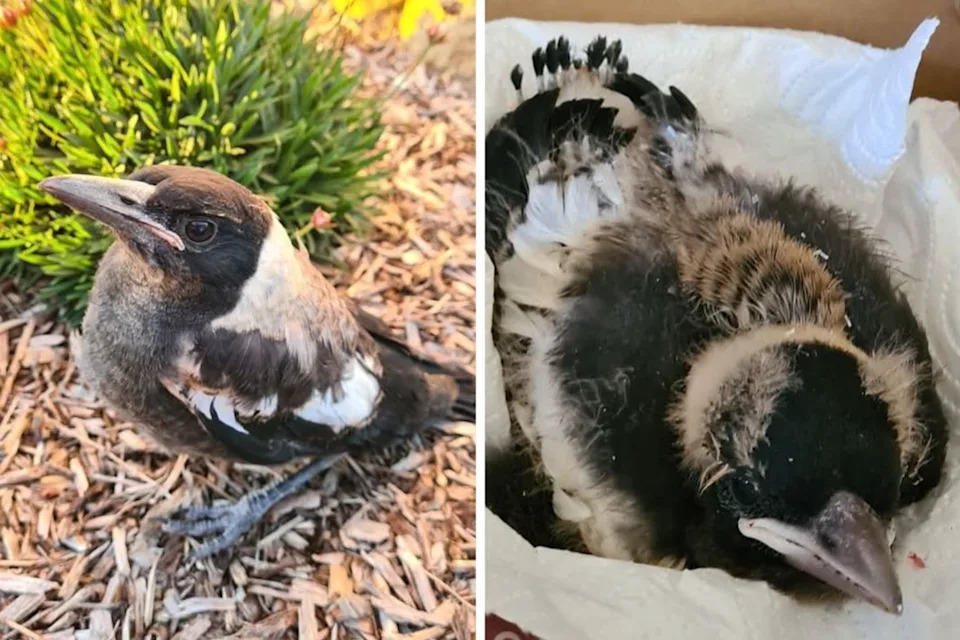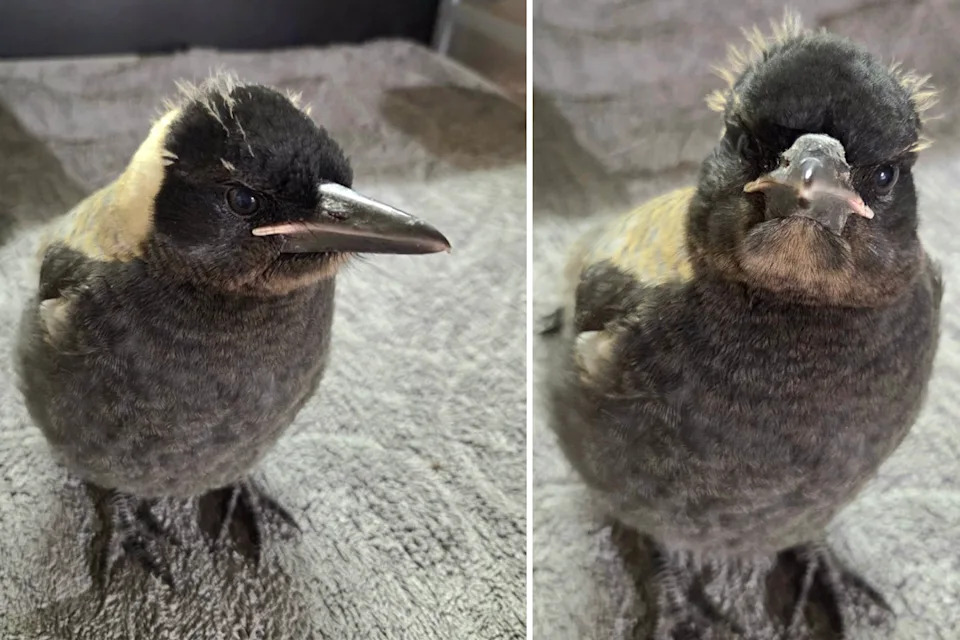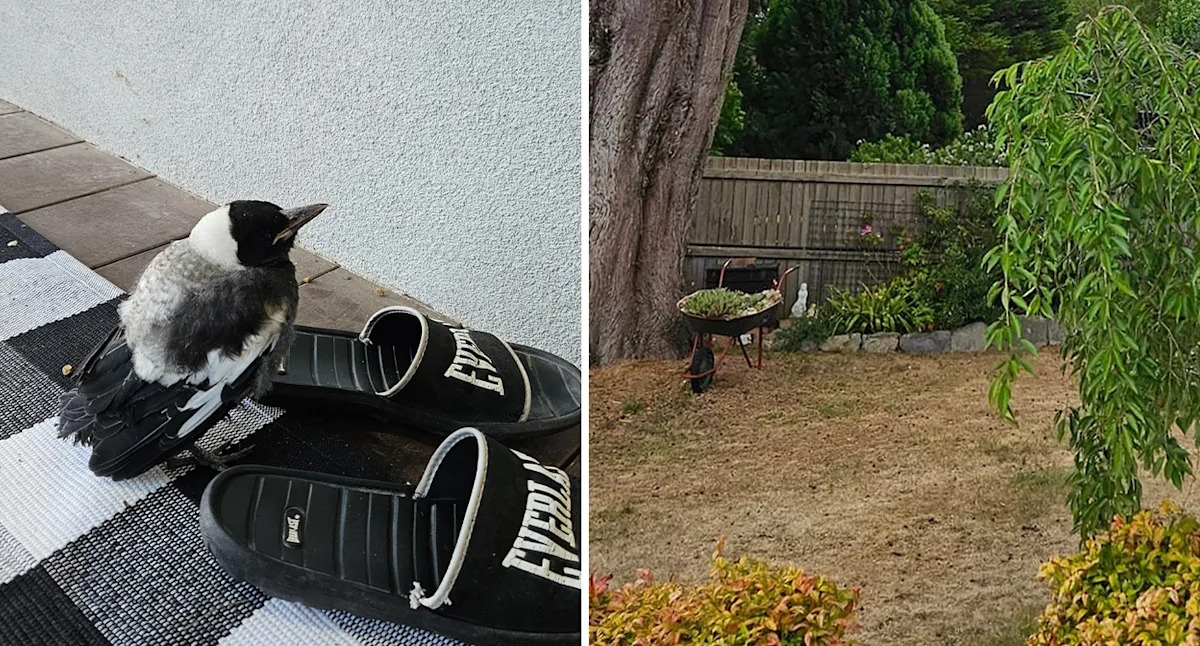An animal rehabilitator is urging the public not to interfere with native wildlife unless absolutely necessary, amid what she described as an annual surge in people taking fledglings from their natural habitat back to their homes.
Shelly Burrowes, from the Hamilton Wildlife Shelter in Victoria, has been an animal rescuer for over 15 years. Speaking to Yahoo News, Shelly recalled how annually in Spring, she sees a consistent number of magpie chicks brought to her from members of the public who had kept them in their homes.
She believes that, oftentimes, people will see a fledgling — a ground-dwelling bird that has left the nest but is not yet able to fly — and assume it needs “rescuing”. Though in most cases, it’s embarking on a normal stage of its life.
According to Shelly, people take these birds to rear them from their home, with the incorrect belief that they can “rehabilitate” them. However, she said, this actually prevents magpies from learning critical natural survival skills and drastically reduces their chances of long-term survival.
“It’s a trend that’s always been around. We see it every spring,” Shelly said. “In the country, people definitely think it’s not a big deal. They see a magpie chick, and they think it’s easy to take because they fledge from the nest and can’t fly for the first week.
“They might assume magpies are easy to look after and feed, and they don’t understand that they’re feeding them the wrong things. It’s only later that they realise the magpie may not be doing well, and then they ring and ask to bring it into care.”

Magpies will leave the nest and dwell on the ground before they’re able to fly. Source: Hamilton Wildlife Shelter, Victoria, Australia.
Why is taking birds from their habitat harmful?
Shelly said that it might be natural to feel concerned when people see a young bird on the ground, especially magpies, which often look helpless during fledging. But in most cases, stepping in does far more harm than good. What many people mistake for an abandoned or injured chick is actually a normal stage of development, where the bird is learning vital survival skills outside the nest.
At this stage, fledglings still rely on their parents, who are usually close by, keeping watch and providing food. Interfering — by picking them up, moving them, or taking them home — disrupts that process.
Wild birds need to learn how to forage, fly, and respond to predators in their natural environment. By leaving them alone, you’re giving them the best chance to thrive in the wild, exactly as nature intended.
“Some people try to help and take them even when they don’t need care, and they end up getting sick. Others are taken just to be kept as pets,” Shelly said.
“Many get raised with dogs and cats, so when they’re released or escape, they might go into someone else’s yard and approach a dog, not knowing it’s dangerous.
“When people take a baby and then release it, the magpie doesn’t know how to be wild. They don’t know how to find their own food and haven’t been raised in a family unit. If they’re released into the territory of another magpie family, they can get attacked.”

The issue is particularly prevalent in spring. Source: Hamilton Wildlife Shelter, Victoria, Australia
Interfering with wildlife is illegal in Australia, carries penalties
The general rule of thumb, Shelly said, is to leave wild animals alone, regardless of the species, unless they’re clearly visibly injured or in distress.
“Many people think that if a bird can’t fly yet, something is wrong, but if the family is around and looking after it, the bird is okay. Nestlings that have blown out may need to come into care and be put back up in a tree so the adults can feed them.
“If in doubt, people should call a wildlife carer to assess the situation,” she said.
Shelly reminds the public that it’s also important to know that interfering with native wildlife, including taking or handling fledgling birds, is illegal in Australia without proper authorisation. These protections are in place under state and territory laws to safeguard native species and ensure they remain in their natural environment.
Well-meaning actions, such as relocating a young magpie, can not only harm the bird but also result in fines or penalties. The safest and lawful thing to do is to leave fledglings where they are and let their parents continue the job of raising them.
Under the Wildlife Act 1975, the possession of wildlife unlawfully taken can carry a fine of up to $39,653 and/or imprisonment of up to two years in Victoria.
Love Australia’s weird and wonderful environment? 🐊🦘😳 Get our new newsletter showcasing the week’s best stories.


